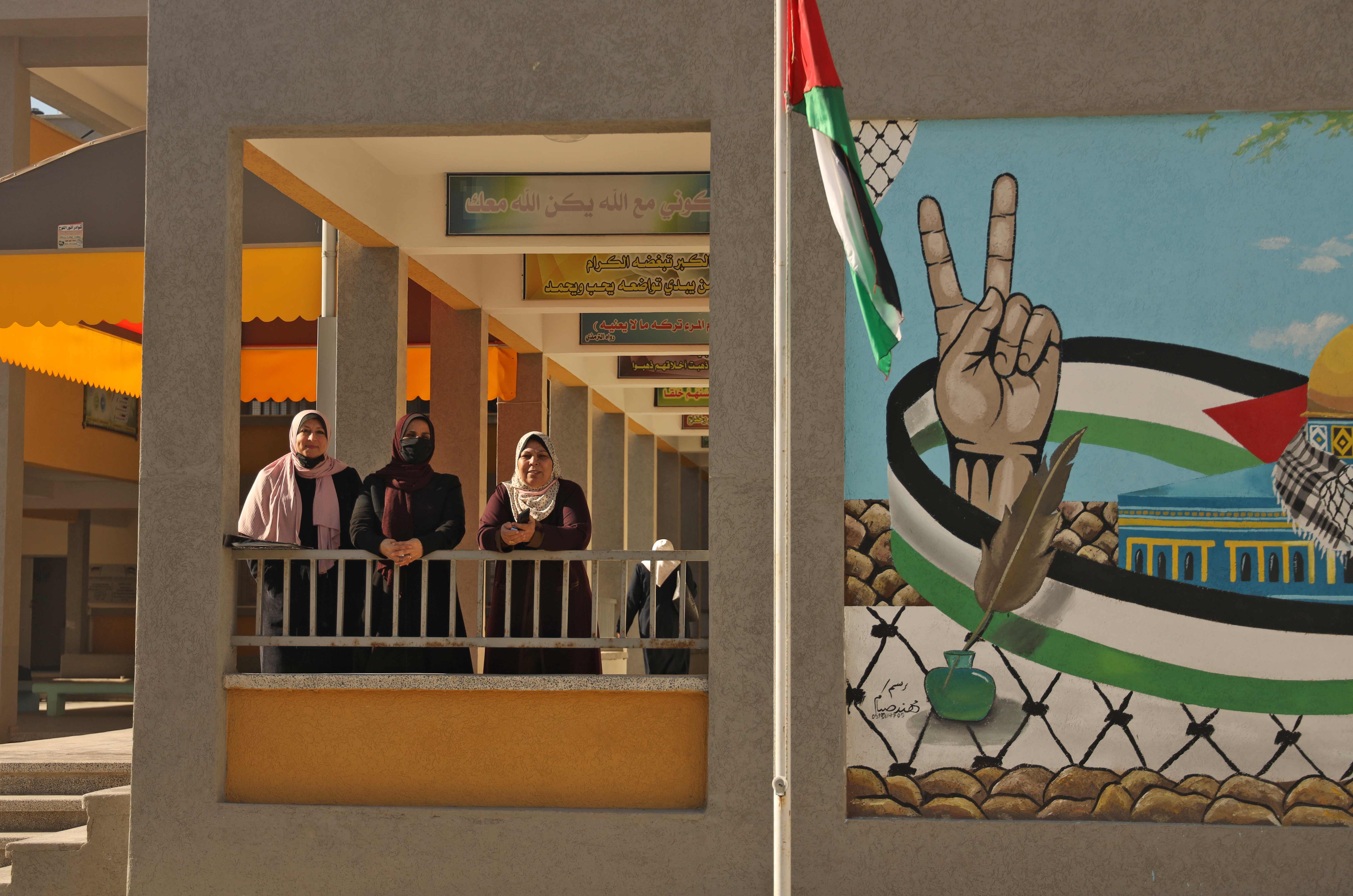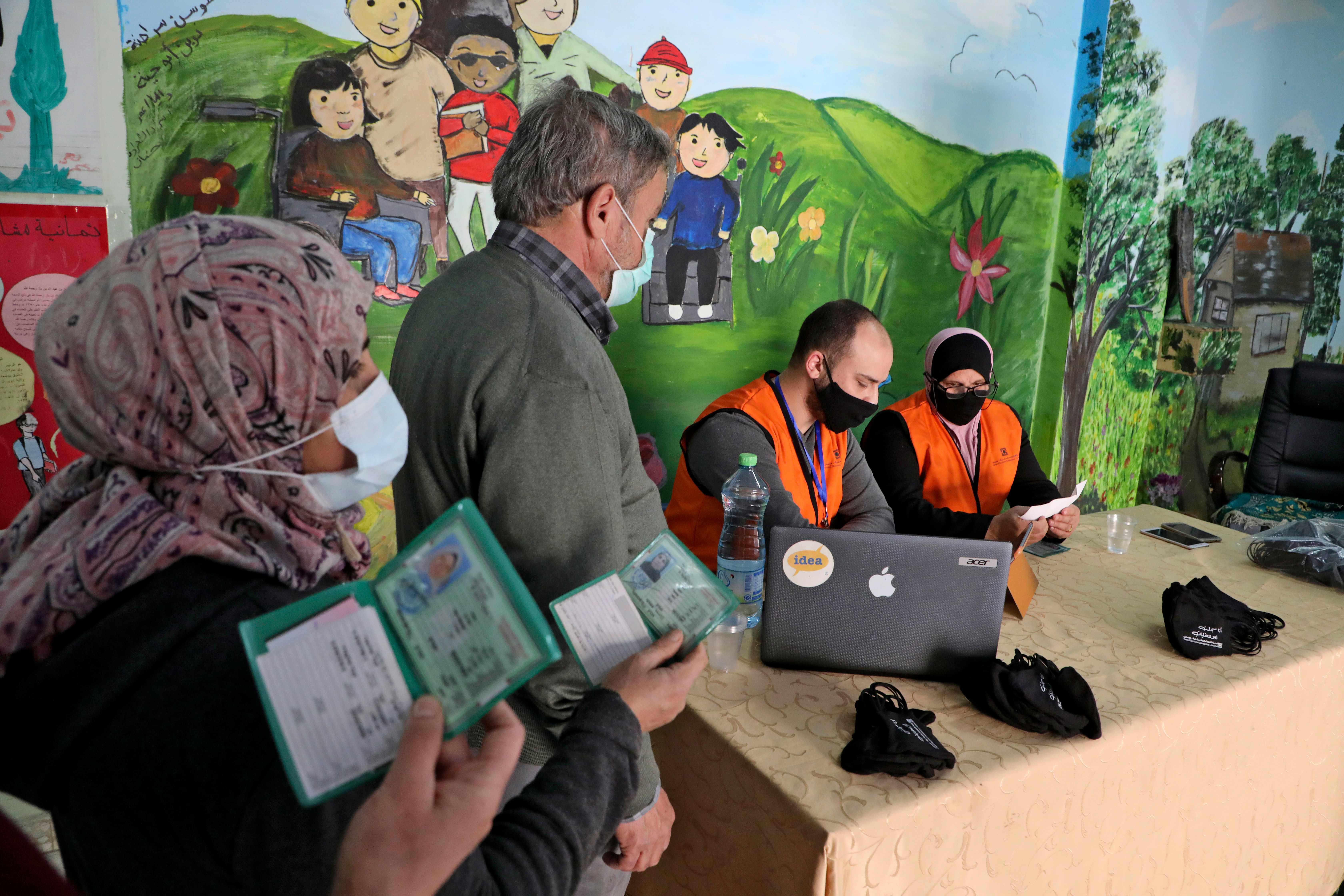Back to the ballot box: Palestinians inch nearer to holding first elections since 2006
For the first time in 15 years, Palestinians in West Bank and Gaza are set to vote but there is already scepticism about the proposed elections, reports Bel Trew


Palestinian rival factions appeared one step closer to holding the first elections in 15 years, as they agreed on Tuesday to key voting mechanisms and a timeline set for this summer.
Long-term foes Fatah, based in the West Bank and Hamas, an Islamist militant group which runs Gaza, reached a deal during talks in Cairo this week. In a joint statement they said they agreed to an “election court” with judges from the West Bank, Gaza and East Jerusalem, to rule in any vote-related legal disputes. They also agreed to abide by an elections timetable which will see legislative elections set for 22 May and a presidential vote on 31 July.
The statement added they would “respect and accept” the results in the elections during which nearly three million eligible voters in Gaza and the West Bank could cast their ballots.
But there has been mounting scepticism over whether the vote would go ahead as no Palestinian elections have been held in the Israeli-occupied West Bank, Gaza and East Jerusalem for nearly two decades. This is in part due to a deepening rift between president Mahmoud Abbas' Fatah nationalist group and Hamas.
The last ballot, in 2006, ended in a surprise win by Hamas in its first parliamentary elections. That set up a bitter power struggle between Hamas in Gaza and Fatah in the West Bank, and resulted eventually in the violent seizure of Gaza by the militant group a year later and Israel imposing a crippling blockade on the strip.
Many Palestinians believe the sudden push forward with the vote is largely an attempt by President Abbas to show his democratic credentials to new US President Joe Biden, who is likely to have warmer relations with the Palestinians than Donald Trump.
During the Trump administration relations reached a new low as Palestinians cut diplomatic ties with Washington over a slew of controversial decisions, such as declaring the contested city of Jerusalem to be Israel’s capital and at one point apparently green lighting annexation of parts of the occupied West Bank.
Critics and analysts have also said that Palestinians have little confidence in an electoral process because of the tumultuous aftermath of the last vote in 2006.
“The aftermath led to a seemingly impenetrable divide between Hamas and Fatah. Elections without reconciliation will only supply each side with opportunities to blame the other for failings,” Yara Hawari from the al-Shabaka Palestinian Policy Network wrote.
She also pointed to the fact that Mr Abbas, 85, became president in 2005 and has exceeded his electoral mandate by over a decade. This “as well as the PA’s increasing authoritarianism have left many questioning his sincerity when he speaks of Palestinian democracy,” she wrote.

At the Cairo talks this week both sides agreed that said Fatah police would guard voting sites in the West Bank and Hamas police would deploy in Gaza. That effectively freezes out more secretive security services whose presence might intimidate voters.
Fatah and Hamas also agreed to release detainees held on political grounds in the West Bank and Gaza and allow unrestricted campaigning.
Mr Abbas announced in January the dates for the votes, and he is expected to run for re-election.



Join our commenting forum
Join thought-provoking conversations, follow other Independent readers and see their replies
Comments